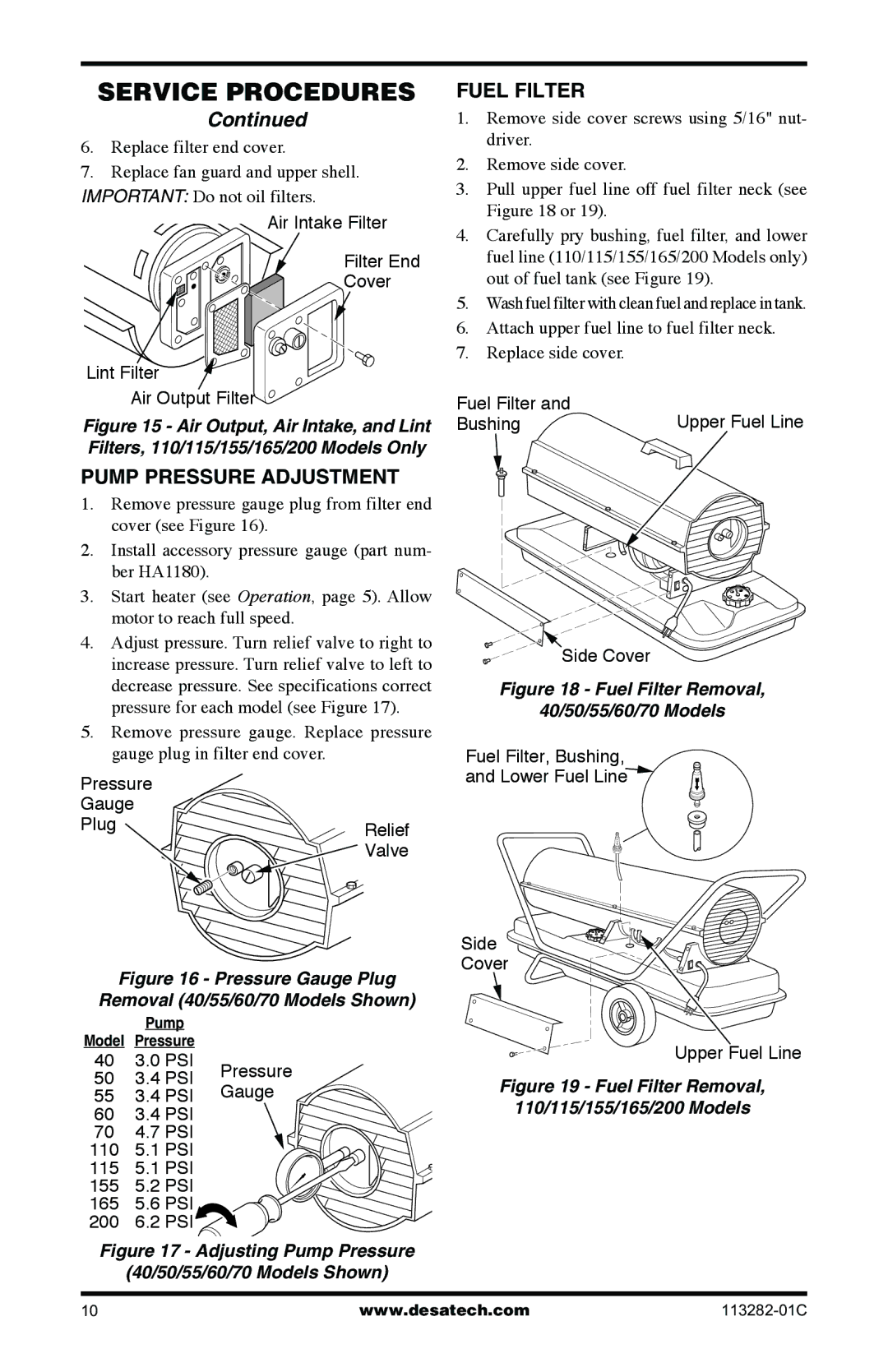BTU/HR specifications
Desa BTU/HR is an innovative energy solution that emphasizes efficiency and sustainability in thermal energy generation. Designed with the modern consumer in mind, the Desa BTU/HR platform integrates advanced technologies to optimize heating systems for both residential and commercial applications.At its core, Desa BTU/HR operates on the principle of maximizing thermal energy while minimizing waste. This is achieved through state-of-the-art heat exchangers and combustion technologies that ensure a higher yield of usable heat per unit of fuel consumed. By utilizing a variety of inputs, including biomass, natural gas, and renewable sources, Desa BTU/HR caters to a range of energy requirements, making it versatile for diverse environments.
One distinguishing feature of the Desa BTU/HR system is its intelligent control mechanism. Equipped with smart sensors and an integrated software platform, the system continuously monitors performance and adjusts operations in real-time. This proactive management contributes to enhanced efficiency, reducing energy consumption and operational costs. Furthermore, the system allows for remote access and monitoring, enabling users to make informed decisions about their energy usage without being on-site.
Another key characteristic of the Desa BTU/HR is its modular design. This means that the system can be scaled to meet changing energy requirements without major overhauls or replacements. Businesses can start with a smaller unit and expand as needed, which is not only cost-effective but also environmentally responsible.
Desa BTU/HR prioritizes sustainability in its operations. By integrating renewable energy sources and reducing greenhouse gas emissions, the platform adheres to international standards for environmentally friendly technologies. This focus on eco-friendly practices aligns with the growing global demand for sustainable energy solutions.
In conclusion, Desa BTU/HR sets a new standard in thermal energy generation through its efficient, intelligent, and sustainable design. With features that promote optimal energy use and a commitment to reducing environmental impact, the system serves as a robust solution for heat generation in today's energy-hungry world. As the landscape of energy production continues to evolve, Desa BTU/HR stands out as a forward-thinking choice for future energy needs.

